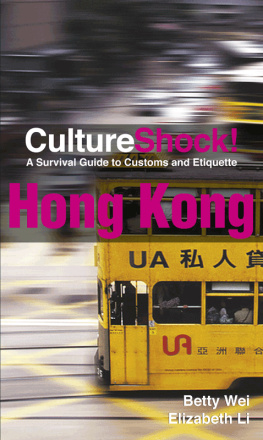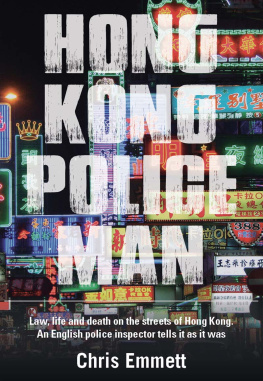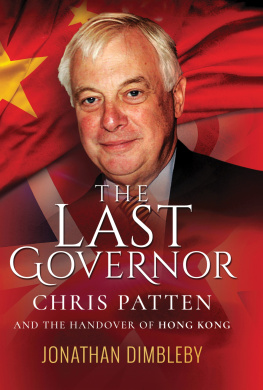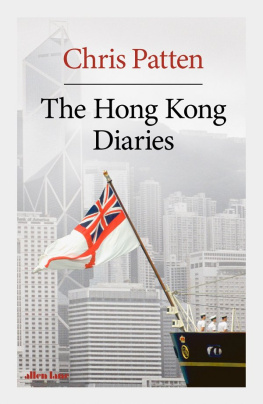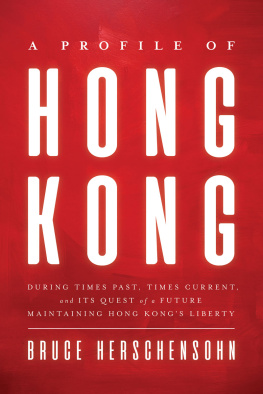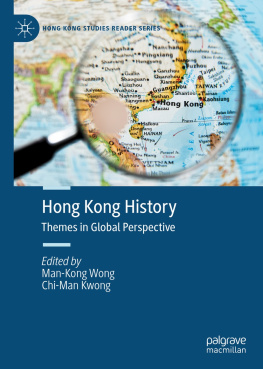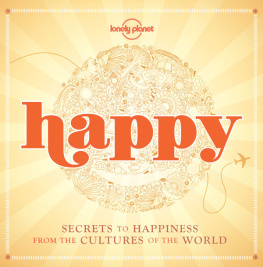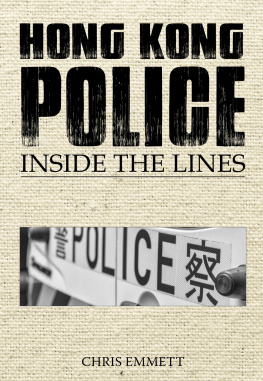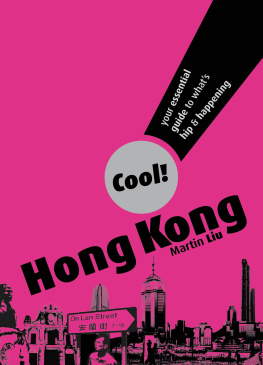Heritage Revitalisation for Tourism in Hong Kong
Heritage tourism is a global multi-million-dollar phenomenon, influencing national, regional and local cultural identities. Hong Kong finds itself at the confluence of several post-colonial economic, political and social developments and with this comes a greater awareness of the need for more meaningful cultural and heritage tourism products, especially in the form of revitalised heritage attractions.
Taking a qualitative approach and using semi-structured in-depth interviews with practitioners and stakeholders in the field, this study explores the role of interpretation in heritage revitalisation projects for tourism in Hong Kong. It seeks to examine why the interpretive element of these projects so often gets diminished during the course of implementation and outlines five propositions that may inform it going forward. Ultimately, the findings of this study suggest that, as issues of local identity become ever more important in Hong Kong, the role of interpretation in the development of its heritage tourism products needs to be holistic, integrated and consistent across public, private and non-governmental sectors.
Developing a framework of understanding to identify the contextual issues of interpretation and commodification, this book will be useful to students and scholars of tourism, heritage studies and Asian studies more generally.
Chris White is founder of Winkle-picker Ltd, a specialist interpretive planning consultancy for museums and heritage tourism. He has worked in the field of museum master planning and design for some of the most famous institutions worldwide for over 25 years. He holds a Doctorate in Hospitality and Tourism Management and is a Fellow of the Royal Society of Arts.
Routledge Focus on Asia
The Abe Administration and Rise of the Prime Ministerial Executive
Aurelia George Mulgan
Heritage Revitalisation for Tourism in Hong Kong
The Role of Interpretive Planning
Chris White
Heritage Revitalisation for Tourism in Hong Kong
The Role of Interpretive Planning
Chris White
First published 2019
by Routledge
2 Park Square, Milton Park, Abingdon, Oxon OX14 4RN
and by Routledge
711 Third Avenue, New York, NY 10017
Routledge is an imprint of the Taylor & Francis Group, an informa business
2019 Chris White
The right of Chris White to be identified as author of this work has been asserted by him in accordance with sections 77 and 78 of the Copyright, Designs and Patents Act 1988.
All rights reserved. No part of this book may be reprinted or reproduced or utilised in any form or by any electronic, mechanical, or other means, now known or hereafter invented, including photocopying and recording, or in any information storage or retrieval system, without permission in writing from the publishers.
Trademark notice: Product or corporate names may be trademarks or registered trademarks, and are used only for identification and explanation without intent to infringe.
British Library Cataloguing-in-Publication Data
A catalogue record for this book is available from the British Library
Library of Congress Cataloging-in-Publication Data
A catalog record has been requested for this book
ISBN: 978-1-138-61488-8 (hbk)
ISBN: 978-0-429-46383-9 (ebk)
Typeset in Times New Roman
by Wearset Ltd, Boldon, Tyne and Wear
For my family
I would like to thank Professor Bob McKercher of the Hong Kong Polytechnic University for his help, encouragement and guidance throughout the research and writing of the original study.
In October 2014, in the London Borough of Tower Hamlets, planning permission was granted by the council for the change of use of a Victorian building to a new museum on the women of the East End and the suffragettes. It was intended to be a localised celebration of womens social history focused on one of the most vibrant and diverse areas of the capital. As stated by the planning document:
The museum will recognise and celebrate the women of the East End who have shaped history, telling the story of how they have been instrumental in changing society. It will analyse the social, political and domestic experience from the Victorian period to the present day.
In August 2015, it opened as The Jack the Ripper Museum. Admittedly an extreme example, this case demonstrates the need for a clear interpretive mission to be articulated at the beginning of a project and carried through to implementation in the process of developing a heritage attraction. In this instance, it was not just a matter of the storytelling being diminished in the end product but of it somehow being perverted from its original stated objective through a flawed interaction between the public and private heritage attraction sectors. A potentially meaningful local attraction that could have had a wider tourism appeal somehow became the crassest of tourism products. As Hong Kong enters a new era of heritage tourism with flagship revitalisation schemes forming a significant part of its promotional impetus, lessons from around the world (including relatively mature heritage attraction markets such as the UK) like these need to be learned and built into any heritage attraction development model going forward.
The tourism industry in 2017 contributed to just over 10% of the worlds GDP and employed nearly 10% of its workforce. The global heritage tourism industry is a multi-million-dollar phenomenon which impacts on national, regional and local aspects of cultural identity. Cultural heritage attractions are subject to the same vagaries identified by tourism theory that apply to other types of destination such as host-destination models (Leiper, 1995; Mill and Morrison, 1985; Hall, 1995), motivation (Richards, 2002), distance decay (Beaman, 1974; Bull, 1991; McKercher, 1998a; McKercher and Lew, 2003), market access (McKercher, 1998b), tourist behaviour (Lew and McKercher, 2006; Moutinho, 2001), finite time budgets (McKean et al., 1995), and destination lifecycles (Butler, 1980; Plog, 1974, 2001). However, working in the field of heritage and museum attraction development in the UK, Middle East, Singapore and Hong Kong, I have over 25 years witnessed the lack of connection between academic theories related to macro cultural/heritage tourism and the government/commercial practice of heritage revitalisation.
Obviously, in order to have a heritage tourism draw you need to have preserved some heritage in the first place. Post-war Hong Kong has been notoriously unsentimental about its built heritage. It is one of the worlds ultimate urban landscapes and has a mature tourism market with well-established and recently completed heritage attractions; this despite a relative lack of heritage assets compared to other world cities. In the last 50 years, heritage conservation policy in Hong Kong has moved from a narrow focus on pre-Colonial archaeology to a broader, more inclusive approach that incorporates the wider public and geographic areas rather than individual buildings. There has been a growing appreciation of the value of cultural and heritage assets (as witnessed by the increased public activism since the removal of the Central Star Ferry in 2006) resulting in more built heritage assets being considered by the government as consumable heritage commodities for adaptive re-use as new venues of entertainment, education and the arts. The importance of built heritage conservation to both the identity of the people and city of Hong Kong, as well as the tourist industry, has been recognised. We can now see the maxim of adapt or die being applied in the revitalisation of heritage buildings for a variety of uses. However, this approach is a relatively recent phenomenon and it remains to be seen how successful the Hong Kong government will be in implementing it. There are already examples such as the Marine Police Headquarters in Tsim Sha Tsui completed in 2009 to reflect upon which experts in the field agree fell short of expectations in many ways; it is more often cited as an example of how not to adaptively re-use a heritage site that has served as a warning for subsequent projects. At the end of 2017, the Blue House cluster in Wanchai, providing residential and community services, won the Award of Excellence in the UNESCO Asia-Pacific Awards for Cultural Heritage Conservation. Whilst this is a small-scale project primarily aimed at the community, it shows that developments in this field are starting to go in the right direction.




